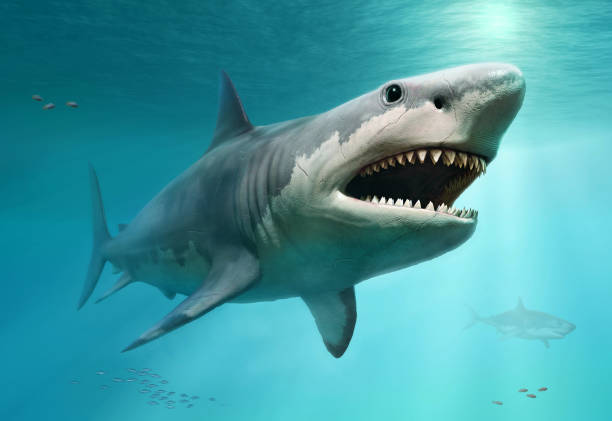The true nature of the “Jaws” monstrous villain
Jaws, an iconic movie series spanning 4 individual theatre releases. The original, at the time of its release debuted as the highest grossing film of all time making a whooping 472 million in the box office internationally cementing its self in pop culture history as one of the greatest thrillers of all time. So thrilling it actually some pretty real world cultural repercussions. Beach attendance across America plummeted a few weeks after the release of the film, many developing a deep seeded fear of what lurks beneath the oceans waters after watching the film. Perpetuating negative stereotypes about sharks and their behaviours. So much so that prior to the films release it allegedly inspired legions of fishermen to pile into boats and cull thousands of the ocean predators in shark-fishing tournaments.
The “Jaws Effect”. The Great White Shark has since been perceived as a cold blooded killer of the oceans, which is understandable I mean look at them they’re bloody terrifying to look at. But what if I were to tell you that that if we continue to mistreat our misunderstood
protectors of the ocean our worlds oceans and subsequently our eco system will fall into disarray?
Every year around 100 million sharks are culled at the hands of humans, either from by-catch which means that marine animals have been caught accidentally with either nets or hooks, or from the shark fin soup trade, a dish that is commonly served at special occasions such as weddings or simply as a luxury meal in the South East Asia region. Sharks have swum our oceans more than 400 years, surviving many existential level events, yet through human intervention since the 1970s the shark population has dwindled by a staggering 70 percent with 25 percent of all shark species are currently threatened with extinction. Sharks make their homes in many ecosystems around the world,
from shallow mangroves to chilling arctic waters and everything in between. Many fish-eating sharks weed out the sick weak individuals, ensuring that fish population remain at a health and manageable size in which their ecosystem where they reside can manage. They also play a part in our oceans role of regulating oxygen by feeding on fish that devour oxygen producing plankton. A little known fact being that phytoplankton produce unto 80 percent of the worlds oxygen. Without sharks to keep them in check certain fish populations will skyrocket.
I have been lucky enough to have SCUBA dived around a few species, my favourite being the thresher shark encounter off the coast of a very secluded island in the Philippines. We set off at 4.30am an hour long boat journey ahead of us to get to a popular Thresher shark feeding ground witch seemingly felt like it was in the middle of nowhere, a spot that local fisherman had discovered many years ago now. As we set up our gear, the sun just starting to peek over the horizon, a little bit of anxiety sets over my dive partner. She asks our bubbly dive instructor what were to happen if these creatures ever became aggressive towards us? A thought that had never crossed my mind, but one that stuck with me for the first half of our dive.
We start our descent using the mooring line, roughly to around a 15 metre depth. We head towards the shark feeding site, my dive partner sheepishly swimming behind me as we agreed upon in our pre dive safety checks so that if a shark were to come “I’d get eaten first”. We find a nice flat open spot to set ourselves overlooking the sheer drop-off where the sharks are known to come up from the depths to feed on the reef fish whom inhabit the shallow reef and we wait for what seemed like an eternity. My buddy gripping my arm I hear her let out an audible scream through her reg, eyes wide she points towards the depths. Our first Shark, swimming roughly 20 metres away from us and coming
closer. My heart starts to race. We do as our instructor advised and plant one fin in the sand and simply observe. My buddies grip on my arm tightens, her previous statement ringing through my mind. It beckons closer, 10 metres away at this point. I prepare for my Jaws moment… and nothing. I lock eyes with the creature as it elegantly glides through the water like a figure skater on ice. At awe with its sheer size yet gentle demeanor it passively observes us as we to it, only to disappear into the depths a few seconds later. Throughout the dive I encountered 6-7 more sharks.
My Jaws moment never happened. Although the thresher shark is just one of many shark species and isn’t in any way related to the Jaws series, my perceptions on sharks had been altered due to the cultural misconceptions behind them. I couldn’t have been any further from the truth. Sharks are a vital part of our big blue planet and if we don’t start doing right by these misunderstood beauties we have a very finite time left on it. It is important to understand at as much as our oceans need sharks, so do we.
